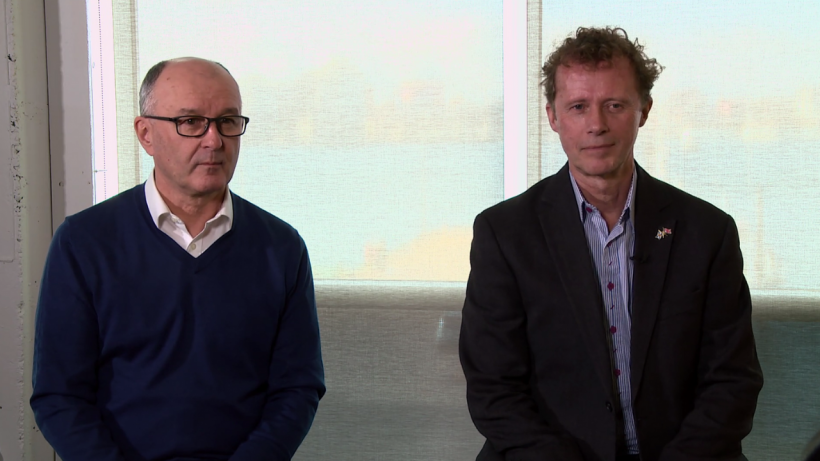A quartet of oceantech and computer vision startups, two each from Canada and England, will receive a combined $500,000 to develop sensor and decision-making technology for uncrewed marine vessels under a partnership between the Ocean Technology Council of Nova Scotia and Innovate UK.
St. John’s-based eSonar will work with Basingstoke, U.K.’s Aquatec Group, and Halifax’s Deep Vision will collaborate with Malvern, U.K.-based D-RisQ. Both teams are working on projects to develop technology intended to bring ocean-going robots closer to "seeing" in real time.
eSonar will combine its subsea acoustic sensors with Aquatec’s marine instrumentation technology to create a more sophisticated sensor suite.
“The biggest impact of the technology we’re working on is expanding the area of safe navigation for automonous underwater vehicles (AUVs) – so that we can collect more data on the ocean,” said eSonar CEO Gary Dinn in a statement. “A good example would be in Canada’s North where many of the bays and inlets have never been surveyed. If we can do that with AUVs that have increased situational awareness, it will add real value to Canada’s North.”
Deep Vision, meanwhile, will combine its hardware and software “perception” systems for marine use with D-RisQ’s technology for spotting problems and preventing errors in artificial intelligence systems.
“We’ve done a lot of work on the detection of marine mammals, especially the North Atlantic right whale – to be able to automatically detect those via camera systems,” said Deep Vision Chief Executive Alan Parslow. “What we’re doing is enabling truly autonomous systems, which is [cutting] edge AI. It’s taking place without remote control and nobody staring at a screen.
"Something can go off and do its job because it can perceive the environment and the objects within it.”
The funding is from a competition announced in October, and backed by the Atlantic Canada Opportunities Agency to the tune of $275,000, for Atlantic Canadian and British startups to partner on new sensor technology and communications systems for autonomous marine vehicles.
The two joint projects also build on a recent trend of collaboration between Atlantic Canadian and European oceans industry players, particularly in relation to artificial intelligence companies. Aquatec Group and D-RisQ were both previously part of an Innovate UK-organized business development mission hosted by the Dartmouth-based Centre for Ocean Ventures and Entrepreneurship in January.
And in March, Canada’s Ocean Supercluster inked a collaboration and knowledge-sharing deal with Fórum Oceano, a government-backed Portuguese nonprofit that supports the blue economy. The deal laid out plans for future knowledge transfer around artificial intelligence, joint research and development activity, collaborations on climate change adaption work, public awareness initiatives and general collaboration between the member businesses of each cluster.










